Inside PIABO – How different personalities make us grow stronger together
Different preferences, motivations and ideas make us unique personalities. Those who know their own preferences and needs as well as those of their colleagues can better respond to their counterparts. In this blog, our Unit Director Ulrike Grandi-Haferstroh and our Head of People Development Juliane Seack describe how we strengthen the personalities of our employees at PIABO.
What do you prefer? About human preferences
Can you write with your left hand? That's certainly no problem if you're left-handed. But if you are right-handed? Try it out. A practice sheet or two (or 22) later and you might get the hang of it. But if you need it fast? A friend calls you the place and date of the next meeting before hanging up on the phone. Which hand are you writing with now?
What you've tried here is called preference. Of course, you can learn to write left-handed if you are right-handed. Many left-handed people used to have to learn to write with their right in order to make it in the school system at all. But what does that do to a person, to have to behave contrary to his/her preference? What does that mean for work results and satisfaction?
Different personalities make teams strong - if we talk about it
There is a typical situation in the work context that we all know: We send each other quick and uncomplicated messages via the internal chat, thus saving valuable time - but also often a formal form of address. However, it also happens that one or the other chat message is understood differently than it was sent. We don't just read the factual level, but misunderstand the message on the relationship level. Our counterpart, with his/her preference (exemplified here) to send information quickly and move on to the next task efficiently, has not met our preference for closeness and empathy. This is a misunderstanding that can be avoided if we know and want to understand ourselves and others better.
It all starts with self-reflection
Let's face it, how often do we really engage in introspection? At PIABO, we want to take each:n employee on that very journey. As an agency, we want to grow, both personally and personally, while working together in the best possible way. For us, the basis for this is to know ourselves and to appreciate the individuality of our counterparts. With the Insights Discovery Model, we have chosen a model to help us do just that. Insights is based on four color energies, each of which combines different preferences. Each personality is a very individual interplay of the four color energies. Up to three color energies are strongly pronounced and shape the way we think, work and approach challenges.
For example, one personality is dominated by green color energy. Green represents caring, team-oriented, relaxed and encouraging traits. This may cause that person to see someone who is very curt and terse in response to his or her very caring, inclusive question as dismissive or even hostile. This usually doesn't happen consciously, but let's face it, each:r of us knows that little internal wince once a phrase hits us - this is where Insights helps us maneuver ourselves more quickly toward understanding and clarification.
Four colors for multilayered personalities
Last year, we integrated Insights into our work as one of many steps in team development with the goal of better and more value-creating cooperation. Pretty quickly, blue, green, red and yellow were no longer just colors, but synonyms for our employees' needs and preferences. Among other things, this led to the fact that "the lively yellow one" was no longer so annoyed by the demands for the neat and punctually provided agenda for the meeting by "the structured "blue one". Working with Insights helps us to deepen communication and better understand idiosyncrasies in how each person works - even to be more curious about each other. Most importantly, it helped and still helps us to get to know ourselves better and to look at our personalities and how they influence our communication and ways of working.
With this knowledge and a large portion of willingness to learn, we want to further develop PIABO as an organization. We have gradually analyzed the preferences of all employees in all units by means of a questionnaire - we also do this on an ongoing basis with all new colleagues. It is especially important for us to understand Insights as one piece of the puzzle and not as a panacea. In each team, we moderate managers together with the people team in daily doing and in targeted workshops on how the knowledge of all preferences can best be used in teamwork. We have found a language to express specifics and developed appreciation and acceptance for the wonderful diversity on our team.
Growth increases the need for reflection and exchange
One thing is clear to us: trust and connectedness with the team and the company are two key criteria for successful teams. (Reading tip at this point: 5 Dysfunctions of a team by Patrick Lencioni).
For PIABO this is especially relevant: Because in addition to our office in Berlin, we enable all colleagues to work completely remotely. We are represented throughout Germany in hubs (locations with three or more employees who can use a design office location) and satellites (locations with up to two employees) and some colleagues even work permanently from abroad.
Particularly in teams working mainly remotely, we meet only selectively and for very specific work situations. The office situations in which we are able to see more context - from "life-size" facial expressions and gestures to interjections that reveal worries, fears and tensions - are limited and need to be deliberately organized and moderated. We need occasions and spaces where our teams can catch up. The bigger we get, the greater this need becomes.
Leadership is always also self-leadership
This also changes the role of leadership. Trust and solidarity must be actively built, tensions in teams must be recognized and moderated, employees must be empowered to communicate better with each other, and their sense of personal responsibility must be strengthened. To be able to do this, we must also know ourselves well as personalities, classify our preferences, supplement them with second or third opinions, and lead the way as good role models.
We managers can provide the tools and ensure that spaces for reflection are offered, whether in retrospective with the respective team, one-on-one with the manager, or in individual coaching sessions. However, we can and should no longer do the clarification work for the teams alone. And this is exactly where models - in addition to Insights, Nonviolent Communication and the principles of team dynamics as well as Schulz von Thun's Communication Square also play a role for us in team development - come into play, always (only) as an invitation to reflect and learn.
The joint reflection journey
In short, Insights is one of many models that can be a starting point for the development of a person, a team or an organization, if used correctly and sustainably. It is a method for making preferences visible, for self-reflection and for creating a basis for conversation within the team. Or as our Head of People Development & Employer Branding Juliane Seack puts it:
"Insights is not the answer to all HR and organizational development questions, it does not provide permission to generalize, and it is definitely not an employee evaluation tool. But it is a way to discover yourself and thus provides a gateway to successfully communicate and collaborate with others."


